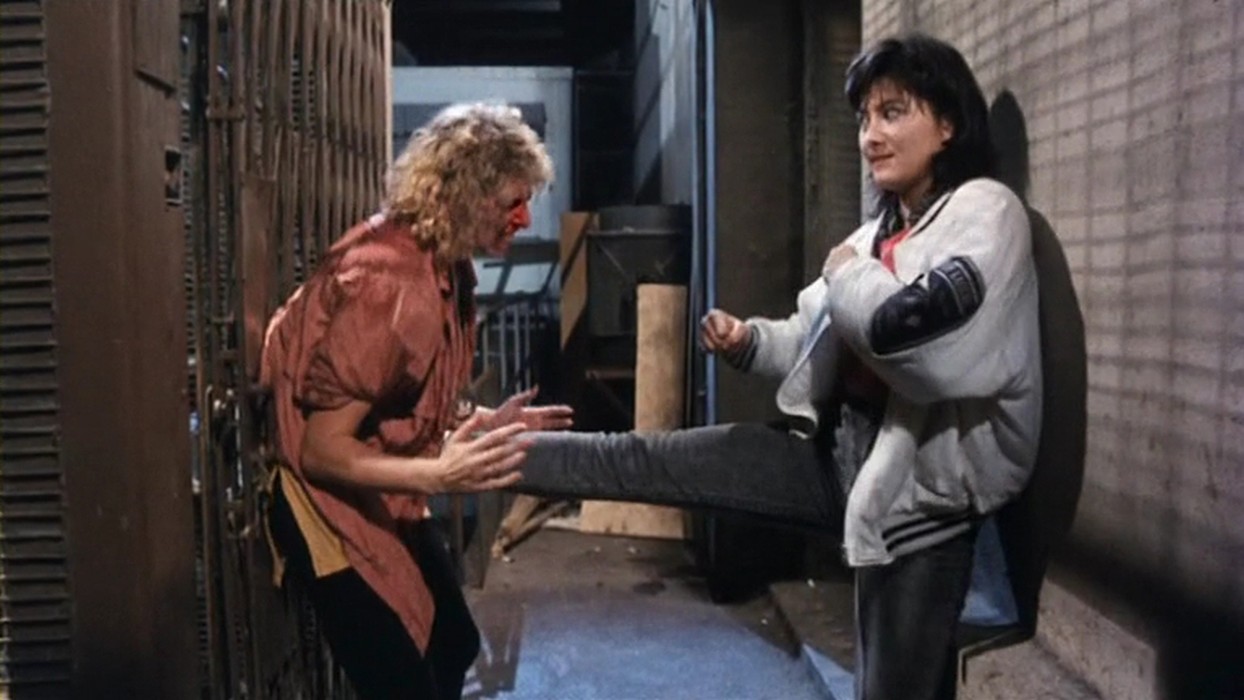Literary rating: ★★★★
Kick-butt quotient: ☆☆☆
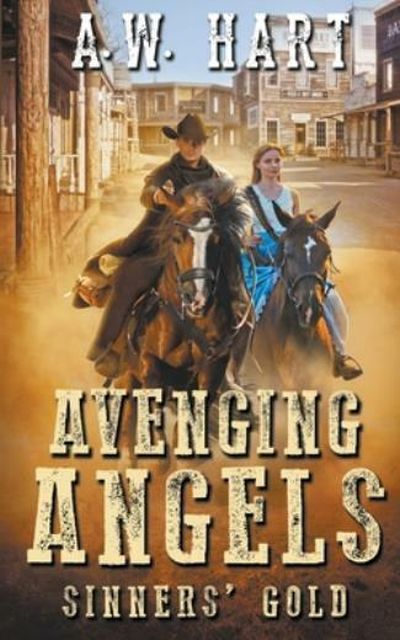 “A. W. Hart,” the nominal author of the Avenging Angels series, is actually a house pen name used by Wolfpack Publishing for the multiple authors of this and one or two of their other series. Where books are marketed or shelved by the author’s name, this device allows a series to be kept together. It also makes it possible for the same main character(s) to be featured in a number of adventures, without being limited to the imagination or time constraints of a single author.
“A. W. Hart,” the nominal author of the Avenging Angels series, is actually a house pen name used by Wolfpack Publishing for the multiple authors of this and one or two of their other series. Where books are marketed or shelved by the author’s name, this device allows a series to be kept together. It also makes it possible for the same main character(s) to be featured in a number of adventures, without being limited to the imagination or time constraints of a single author.
If one dogmatically maintains that worthwhile creative art, by definition, can be created only by individual genius operating in total independence of any collaboration, then this won’t be viewed as worthwhile creative art. (Neither will the music of Gilbert and Sullivan, the art of Currier and Ives, or the novels of Nordhoff and Hall, to cite only a few examples.) This is more of a collaborative effort, building on a common foundation. While it requires, and gives scope for, individual creativity, it also sets the challenge to that creativity of operating in fidelity to the foundation, rather than creating contradictions to it. In the two Avenging Angels books I’ve read, I felt the challenge was met; in both books, the main characters are consistent.
Barb and I encountered this series before only in its seventh installment, Avenging Angels: The Wine of Violence, because the actual author of that one is my Goodreads friend Charles Allen Gramlich. We’d intended to read that one as a stand-alone (both of these books, and presumably the others, can be read that way, since the reader is filled in quickly and simply on the basic set-up and premise of the series in each one and each adventure is self-contained and episodic). By a happy serendipity, however, things worked out for me to purchase this second installment, and we took a chance on it. (It didn’t disappoint!)
As series fans, or readers of my previous review, already know, our main characters and titular “Avenging Angels” here are twins George Washington “Reno” and Sara Bass, still in their later teens, the God-fearing son and daughter of a Lutheran pastor in Kansas. They were 16 in the late spring or early summer of 1865, just after the Civil War, when while they were out hunting, their parents and siblings were massacred by a band of renegade ex-Confederates. The first book (which I haven’t read) describes that incident, how they promised their dying father that they would take on the mission of avenging the slaughter and ridding the world of other lowlifes who prey on the innocent, and how they served justice on the murderers. This book mentions that before doing that, they spent several months under the tutelage of their father’s friend Ty Mandell, learning and honing their formidable gun skills; it’s now summer again, so I’d say we’re into 1866, and they’re about 17.
It’s also mentioned that George got his nickname “Reno” from his dad, after an officer the older Bass had served with in the Mexican War and admired; the author doesn’t state this explicitly, but that would be Jesse L. Reno, who later became a Union general in the Civil War, and was killed in battle in 1862. In the early part of this book, we’re shown how circumstances shaped their decision to become bounty hunters, as a way of supporting themselves while fulfilling their ongoing vow. That decision will soon have them heading to the town of Hatchet, Nebraska to collect their first bounties, along with rather mysterious, 30-something Brenda Walon, who’s on her way to the same place, where an old friend has died and Brenda is named in her will. But Hatchet doesn’t prove to be a welcoming place; mystery and danger await, and this volume will deliver Western action aplenty.
For this book, the real author is Wayne D. Dundee (he’s credited on the back page), a seasoned author of Westerns, mysteries and other genre fiction. His prose is more clunky and plodding than Gramlich’s, with a tendency to frequently explain the obvious. However, the novel is well-plotted (the resolution in the last part, IMO, was quite brilliant –it came as a surprise, but ultimately struck me as perfect) and the characterizations are skillful. Dundee handles action scenes believably and capably, with a high body count but no unnecessary “pornography of violence.” There are no particularly deep themes here, but there are some good messages Bad language of the h- and d-word sort and religious profanity is more common here than in the installment I read earlier, but still a bit restrained; there’s no explicit sex, though there are references to illicit sex, including the brothel that formerly operated in the town.
Action heroine fans will find Sara as deadly as Reno is, and will appreciate both this novel and, probably, any of those in the series.
Author: A. W. Hart
Publisher: Wolfpack Publishing; available through Amazon, both for Kindle and as a printed book.
A version of this review previously appeared on Goodreads.





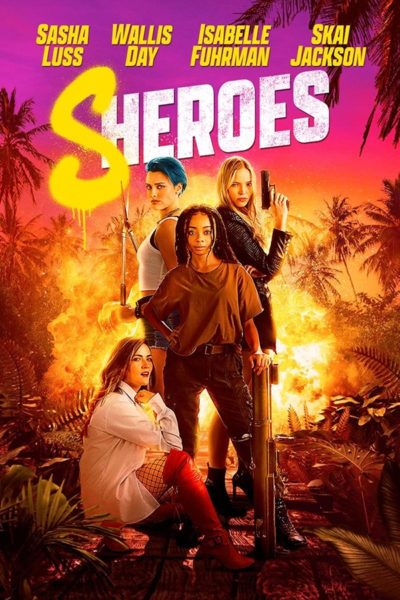 Twenty minutes into this, I was certain I had made a terrible mistake. These four young women were among the most grating and unpleasant characters I’d seen in a movie. I’m talking actively awful: crass, shallow and entitled. They head off to Thailand for a girls’ getaway on a private jet owned by the father of Diamond (Luss), a film producer. By the time they land, check out their mansion and enjoy the local sights, I was ready to set up the guillotines. Then there’s a luggage mix-up, leaving them with a large quantity of Thai cartel coke, and one of their number is kidnapped, in order to coerce them into returning the goods.
Twenty minutes into this, I was certain I had made a terrible mistake. These four young women were among the most grating and unpleasant characters I’d seen in a movie. I’m talking actively awful: crass, shallow and entitled. They head off to Thailand for a girls’ getaway on a private jet owned by the father of Diamond (Luss), a film producer. By the time they land, check out their mansion and enjoy the local sights, I was ready to set up the guillotines. Then there’s a luggage mix-up, leaving them with a large quantity of Thai cartel coke, and one of their number is kidnapped, in order to coerce them into returning the goods.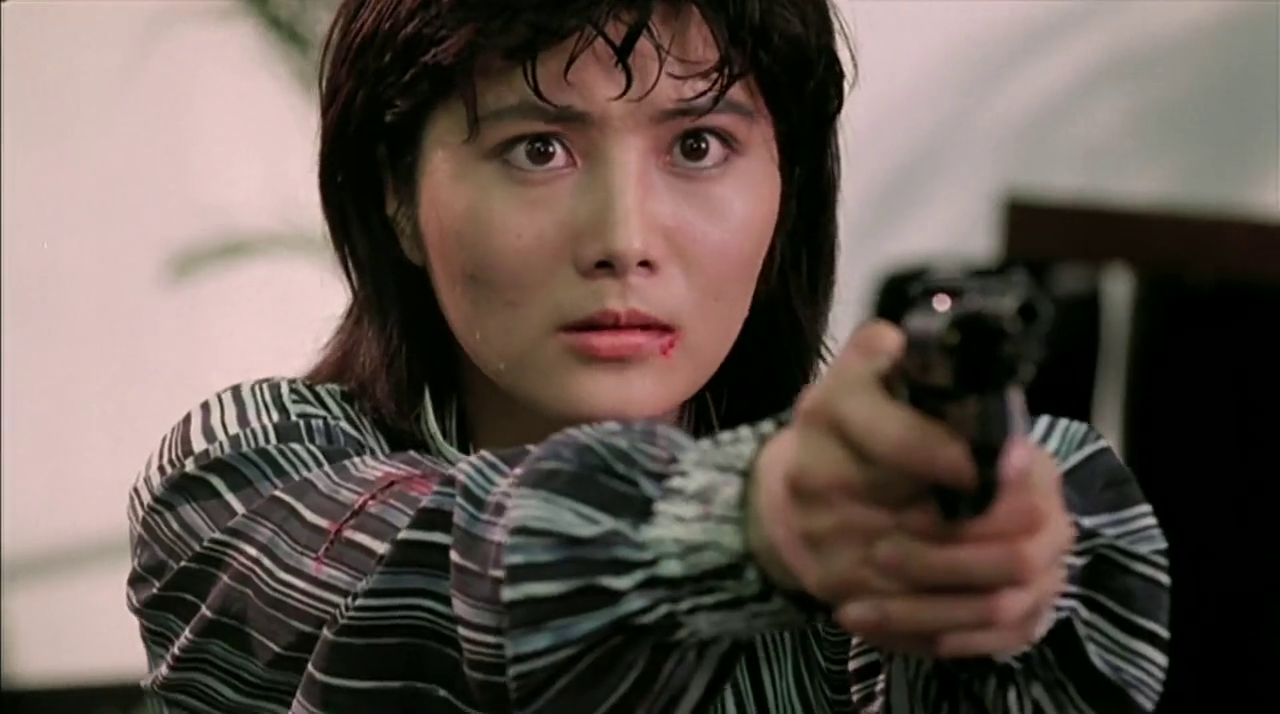 ★★★★½
★★★★½ Back in the early nineties, I saw a double-bill of this and Jackie Chan’s Police Story at the late, lamented Scala Cinema in London, and it blew my mind. I had literally never seen anything like them before. The only martial arts movies I’d watched previously were crappy American ones, which made little or no impression. That afternoon changed my life, and awakened a love of the genre that persists to this day. But would In the Line of Duty 4 stand the test of time? There are certainly movies I loved from the same era, which are now a bit cringe, to put it mildly. So it was with some trepidation that I hit play…
Back in the early nineties, I saw a double-bill of this and Jackie Chan’s Police Story at the late, lamented Scala Cinema in London, and it blew my mind. I had literally never seen anything like them before. The only martial arts movies I’d watched previously were crappy American ones, which made little or no impression. That afternoon changed my life, and awakened a love of the genre that persists to this day. But would In the Line of Duty 4 stand the test of time? There are certainly movies I loved from the same era, which are now a bit cringe, to put it mildly. So it was with some trepidation that I hit play…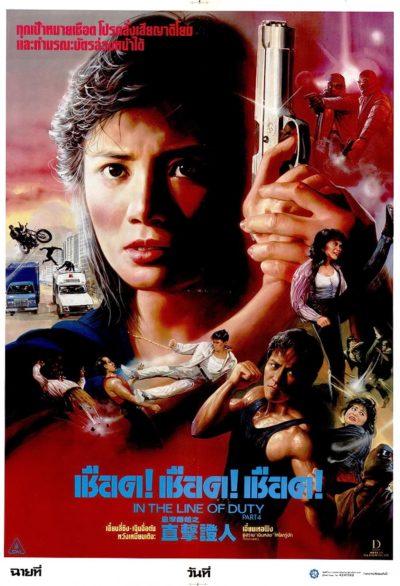 For when all is said and done, the fights are flat-out awesome. It’s not just Khan and Yen, though they obviously get most to do. Everyone here is well up to the task, both showing off their own stuff and letting the stars look good by selling for them. On the female front, I want to give special praise to Farlie Ruth Kordica, who fights Cynthia around a lift-shaft in another sequence which feels disturbingly life-threatening. She only appeared in a couple of other films, which feels like a real shame, based on her performance here. It’s a wonderfully inventive scene (bottom), taking full advantage of the potential in the environment.
For when all is said and done, the fights are flat-out awesome. It’s not just Khan and Yen, though they obviously get most to do. Everyone here is well up to the task, both showing off their own stuff and letting the stars look good by selling for them. On the female front, I want to give special praise to Farlie Ruth Kordica, who fights Cynthia around a lift-shaft in another sequence which feels disturbingly life-threatening. She only appeared in a couple of other films, which feels like a real shame, based on her performance here. It’s a wonderfully inventive scene (bottom), taking full advantage of the potential in the environment. 